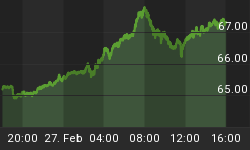Many countries have restrictions and requirements on doctors, nurses, lawyers etc. Greece carries the idea to extreme.
According to Keep Talking Greece "closed professions" include beauticians, drama and dance school instructors, bakers, antiques dealers, insurance agents, insurance consultants, employment consultants, diagnostics centre staff, translators, divers, cameramen, driving school instructors, cab drivers, tourist bus drivers, newspaper stand owners, electricians, sound technicians, private school owners, tobacco sellers, gun manufacturers and sellers, hairdressers, private investigators, port workers, real estate agents, lifeguards, carpenters, financiers, opticians, auditors, movie/theatre director and even car mechanics.
Restrictions will be lifted July 2. That is a much needed maneuver, and the same applies in the US as well.
Many states have prevailing wage laws and other restrictions that have nearly the same effect as the insanity in Greece.
Greek Asset Fire Sale
Please consider Greece Will Accelerate State Asset Sales to Stem Debt Crisis as Bonds Drop
The Greek government endorsed an accelerated asset-sale plan and 6 billion euros ($8.4 billion) of budget cuts to win extra aid and stem a market slide that threatens to swamp the most debt-laden euro-area nations.
Greek Prime Minister George Papandreou's Cabinet agreed yesterday to sell stakes in Hellenic Telecommunications Organization SA (HTO) by the end of next month, as well as Public Power Corp SA (PPC), Hellenic Postbank SA, and the country's ports.
The state's direct stakes in those three companies currently have a market value of 2.1 billion euros. The government also said it would create a fund comprising assets to accelerate the sales, intended to raise 50 billion euros by 2015. The bulk of that will come from selling 35 billion euros of real estate.
The government plans to complete the sale of Postbank by the end of the year, and to sell 75 percent stakes in Piraeus Port Authority and Thessaloniki Port Authority SA. It also intends to extend the concession for Athens International Airport this year.
Greece owns 20 percent of Hellenic Telecommunications, or OTE, with a market value of 3.2 billion euros. It has the right to sell a 10 percent stake to Deutsche Telekom AG, which already holds 30 percent. The government is seeking financial advisers to exercise the put option, and for the sale of a further 6 percent of the company, the finance ministry said.
The Cabinet also announced the additional budget cuts worth about 2.8 percent of gross domestic product need to reach a 7.5 percent deficit target for 2011 even as its economy contracts for a third year, Finance Minister George Papaconstantinou said.
Greece has a "refinancing hole" of 30 billion euros for both 2012 and 2013, according to economist Nouriel Roubini. The nation could restructure by issuing debt with lower interest payments and extend maturities as it's unlikely the nation will "regain market access for the next five to 10 years," he said in an interview last week.
Untenable Timeline
Note that Roubini's timeline is 5-10 years. The ECB an EU expect Greece to return to the dent markets by 2013.
Structural reforms or not, Greece will not pay back its debt in two years, nor will Greece return to a healthy bond market in two years.
Greece will default.
Greece Compared to US
Ending Restrictions on 130 "Closed Professions" is a badly needed reform. However, the near-term effect will be lower wages, lower benefits, and increased competition.
Increased competition needs to happen in the US as well, with public unions kicking and screaming every step of the way. The SEIU, like the Greek unions, don't want reform at all.
Regardless, the US desperately needs to reduce red-tape and open up competition for jobs in education, in garbage collection, in prisons, in healthcare, in all government work.
Unfortunately Keynesian clowns and politicians alike want results now, and when it doesn't happen now, they clamor for more stimulus, even though stimulus is a problem.
Fed's Misguided Tactics
Compounding the problem, the Fed fights wage destruction with policies that encourage speculation and debase the dollar but don't increase wages. The result is repetitive asset bubbles and debt that cannot possible be paid back.
Wages have not gone up, nor have housing prices, nor has employment, yet the Fed persists with failed policies that slowly destroy the middle class.
It's a nasty brew. In many ways the US has more in common with Greece than most realize, especially when it comes to public unions and lack of competition for protected government jobs.
Interestingly, self-serving extortionists compared the public union protests in Madison to freedom fighters in Egypt.
As I pointed out in Public Union Protesters More Like Greek Extortionists than Egyptian Freedom Fighters; Unions Under Fire in Wisconsin, Ohio, Tennessee; Student Idiocy, comparing SEIU protests to freedom fighting is sheer lunacy.
The Gimme, Gimme, Gimme "Better Way" Chanting Mob looks more like the Greek public union extortion than it does anything else.
Our cure is simple. Pass national right-to-work laws, scrap Davis-Bacon and all prevailing wage laws, and end the Fed.
Dissimilarities
Bear in mind Greece has other problems that are not comparable, so does the US. For example, the US has untenable military spending and a health-care system that is the most costly in the civilized world.
Greece is in a currency union with no fiscal union. Greece has no way to devalue its currency or set interest rates. Greece has few exports while the US is a huge exporter that simply imports far more than it exports.
Thus, I do not want to imply the US is Greece. I simply highlighted one area that is more similar than most think.















